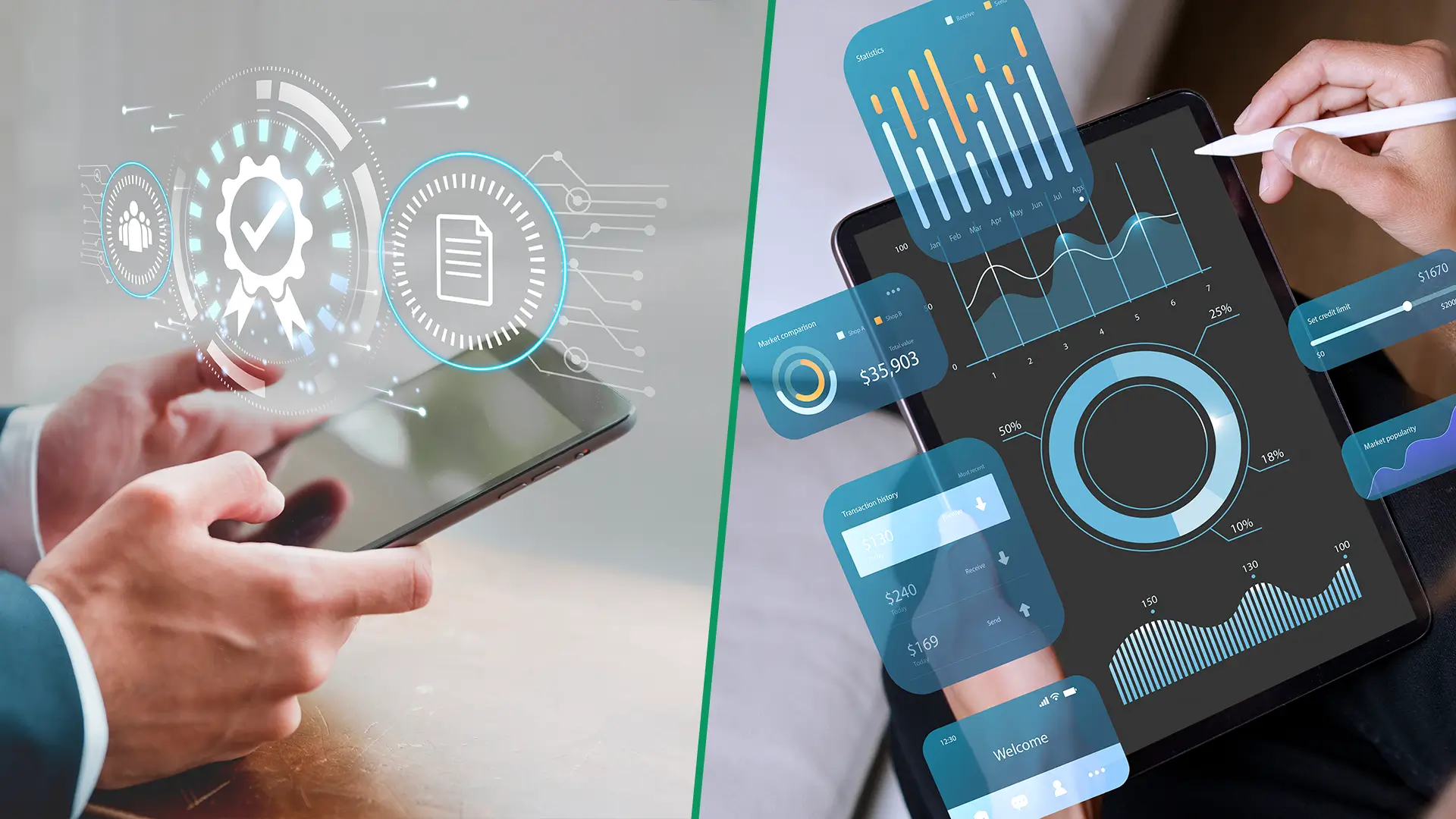AI-Powered Key Takeaways
In today's fast-paced digital landscape, traditional testing methods often struggle to keep pace with the increasing complexity and speed of development cycles. Organizations are now turning to AI test automation as a transformative solution to overcome these challenges. As per a study by Mckinsey, the average number of AI capabilities that organizations leverage has escalated from 1.9 in 2018 to 3.8 in 2022 (almost doubled). This is where organizations are increasingly focusing on AI test automation, offering a transformative solution that every Chief Technology Officer (CTO) should embrace. By leveraging advanced data analyzing capabilities, AI-powered testing revolutionizes the testing process and makes it more efficient, accurate, and advantageous for good business outcomes and customer satisfaction. In this blog, we will explore why CTOs should adopt AI-driven testing and how HeadSpin helps enterprises in AI-driven testing.
The Rising Importance of AI in Testing
With the growing demands for robust and flawless applications, the importance of AI in software testing has never been higher. AI testing utilizes advanced algorithms and machine learning models to automate and optimize the testing process. It enables faster test execution, intelligent test case generation, and comprehensive test coverage.
Check out: A Detailed Guide to Code Coverage and Test Coverage
Why is it challenging to adopt AI testing?
While the benefits of AI-driven testing are evident, there are challenges that organizations may face when adopting this approach. One primary challenge is the lack of awareness and understanding among CTOs and testing teams about the potential of AI in testing. Some may be skeptical about the scalability of the capabilities and transitioning to it or are resistant to change, as traditional testing methods have long been ingrained in the industry. Furthermore, AI-related risks have often hindered CTOs from adopting AI extensively. In fact, the rate of risk mitigation that organizations engage in to improve digital trust has not risen as expected. As per Mckinsey & Company, there have been no substantial increases in reported mitigation of any AI-related risks from 2019 till the end of 2022.

Additionally, often there are concerns about the initial investment required to implement AI-driven testing tools and the need to upskill the testing workforce. Overcoming these challenges requires a proactive approach and a clear understanding of the long-term benefits that AI-powered testing brings.
Test and monitor websites & apps with our vast real local devices across the world. Know more.
5 key reasons why CTOs should focus on adopting AI-testing
1. Improved Test Efficiency: AI-powered testing enables organizations to achieve faster test execution and reduce time-to-market for their applications. By automating repetitive tasks, AI algorithms free up testing teams to focus on more complex scenarios and critical areas of the application. This significantly accelerates the overall testing process.
2. Enhanced Test Coverage: Traditional testing methods often struggle to cover all possible test scenarios, leaving room for potential defects to slip into production. AI-driven testing overcomes this limitation by analyzing vast amounts of data and generating intelligent test cases. This ensures comprehensive test coverage, minimizing the risk of undetected defects.
3. Early Defect Detection: AI algorithms excel at identifying patterns and anomalies within large datasets. This ability allows AI-powered testing to detect potential defects at an early stage, even before they manifest as critical issues. By catching and addressing issues early on, organizations can significantly reduce costs and the impact of fixing defects in later stages of the software development lifecycle.
4. Realistic Test Environment: AI-driven testing tools can simulate real-world scenarios by mimicking user interactions, network conditions, and device configurations. This enables organizations to test their applications under various conditions and ensure optimal performance across different environments. By replicating the complexities of the production environment, AI-powered testing provides more accurate and reliable results.
5. Continuous Testing and Quality Assurance: Organizations can achieve continuous testing throughout the software development lifecycle by integrating AI-driven testing into DevOps practices. By automating test execution, analysis, and reporting, AI-powered testing facilitates faster feedback loops between development and testing teams. This ensures that quality assurance is embedded into every stage of the development process.
How HeadSpin drives AI testing to benefit organizations?
HeadSpin is developed with the mission of improving digital experiences by leveraging advanced AI models to monitor critical KPIs, affecting performance and user experience. HeadSpin offers a comprehensive AI-enabled testing platform that empowers enterprises to overcome the challenges associated with adopting AI in testing. With HeadSpin's platform, CTOs can unleash the full potential of AI-driven testing and take their testing practices to new heights.
HeadSpin enables testers and QA teams to test a wide range of applications on real devices across 50+ global locations and offers AI-driven testing insights to identify and prioritize application issues and areas that need improvements. With a robust device infrastructure, HeadSpin allows enterprises to access several real devices, run manual and automated tests in an on-prem, cloud, or hybrid setup, and leverage data science and AI-driven performance and QoE analytics to track 100+ KPIs and monitor app performance and user experience throughout the app lifecycle.
HeadSpin's testing capabilities enable organizations to drive AI-powered QA and seamlessly integrate with DevOps practices. With AI test automation and analysis, HeadSpin enables organizations to achieve continuous quality monitoring throughout the software development lifecycle. This helps teams identify issues early on, preventing them from impacting end-users.
Read: AI In Testing Software: What Does the Future Hold?
The key capabilities of HeadSpin, enabling enterprises to effectively leverage AI testing, include:
● AI-driven testing outcomes
HeadSpin provides a comprehensive AI-driven testing platform that integrates with existing tools and frameworks. It offers realistic test environments, AI-powered insights and analytics, and support for continuous testing and quality assurance, helping enterprises overcome the challenges and maximize the benefits of AI-driven testing.
● Find UX Issues with Custom KPIs
HeadSpin's AI-driven testing Platform collects data on app performance and user experience metrics such as packet-level network data and device KPIs. Using AI and ML algorithms, this data is analyzed to provide actionable insights for companies. Additionally, companies can capture customized KPIs to track data on app issues, time series, session videos, and packet-level details to improve their applications and deliver perfect user experiences.
Also read: User Experience Testing - A Complete Guide
● AI-driven analytics
HeadSpin's AI-driven insights and analytics enable testing teams to identify and prioritize high-risk areas in their applications. With features such as time series, session videos, issue cards, and packet-level details, QA teams can proactively identify problems. By analyzing huge amounts of test data, HeadSpin provides actionable insights that help organizations make data-driven decisions and optimize their testing efforts. This allows CTOs to focus on resources in critical areas, improving the overall efficiency and effectiveness of testing.
Bottom line
AI-driven testing is revolutionizing software testing. CTOs must adopt it to overcome traditional limitations and unlock benefits like improved efficiency, broader coverage, early defect detection, realistic environments, and continuous testing. HeadSpin's advanced platform empowers enterprises with AI test automation tools and support to transform their testing processes, deliver quality applications, and stay competitive.
FAQs
Q1. What are the key AI-related risks that enterprises face?
Ans: While AI offers numerous benefits, it also introduces certain risks:
- Data privacy and security
- Transparency and explainability
- Safety and performance
- Third-party risks
Q2. Will AI inevitably replace workforce members?
Ans: Although AI has the ability to automate certain workflows, it is not anticipated that technology will entirely replace people in the workforce. Instead, AI is far more likely to augment human abilities and free up people to help zero in on more complex, imaginative, and strategic activities. Human-AI collaboration and coexistence are projected to be a part of almost every workplace of the future.
Q3. What are the leading fields where businesses are leveraging AI today?
Ans: As per the Forbes Advisor survey, businesses are implementing AI in a variety of fields. The most widely used applications of AI are those associated with customer service, where 56% of respondents use it, followed by cybersecurity and fraud management, where 51% of organizations leverage it.


























.png)


























-1280X720-Final-2.jpg)






